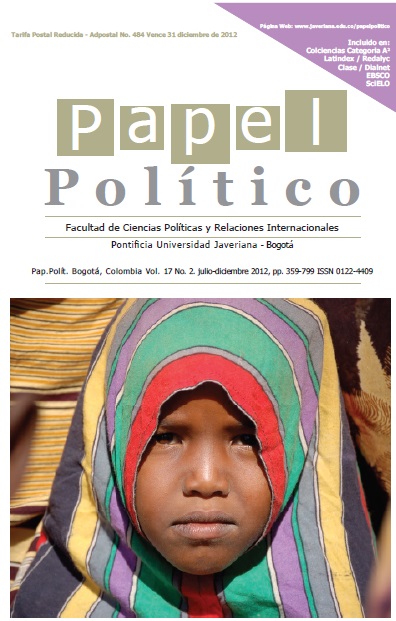Abstract
Any process of conflict and violence marks a dynamic social fragmentation involves breaking the public that exceed the alternative mechanisms ofconflict resolution. Thus, the post-conflict phaseshould be contained by a proposed social policy of reconciliation to ensure the effectiveness of
the processes leading to coexistence and coexistence, founded on principles of public ethics. From this perspective, the momentum created in Colombia since the government initiative of the Justice and Peace (2005), with consequent advances in Victims and Land Restitution (2011) and the so-called “Legal Framework for Peace “(2012), are an approximation and institutional regulations should be consolidated into a public policy, founded on principles of public ethics, to be effective. To address this urgent need to
move beyond alternative mechanisms and legal frameworks, the review of the cases of South Africa and Central America (Nicaragua and El Salvador) offer tools for reflection to contemplate the wisdom that can be the establishment of a state policy conducive to social reconfiguration after long periods of conflict and violence. Configuring a reconciliation framework guarantees we can offer for this work.
This journal is registered under a Creative Commons Attribution 4.0 International Public License. Thus, this work may be reproduced, distributed, and publicly shared in digital format, as long as the names of the authors and Pontificia Universidad Javeriana are acknowledged. Others are allowed to quote, adapt, transform, auto-archive, republish, and create based on this material, for any purpose (even commercial ones), provided the authorship is duly acknowledged, a link to the original work is provided, and it is specified if changes have been made. Pontificia Universidad Javeriana does not hold the rights of published works and the authors are solely responsible for the contents of their works; they keep the moral, intellectual, privacy, and publicity rights.
Approving the intervention of the work (review, copy-editing, translation, layout) and the following outreach, are granted through an use license and not through an assignment of rights. This means the journal and Pontificia Universidad Javeriana cannot be held responsible for any ethical malpractice by the authors. As a consequence of the protection granted by the use license, the journal is not required to publish recantations or modify information already published, unless the errata stems from the editorial management process. Publishing contents in this journal does not generate royalties for contributors.


